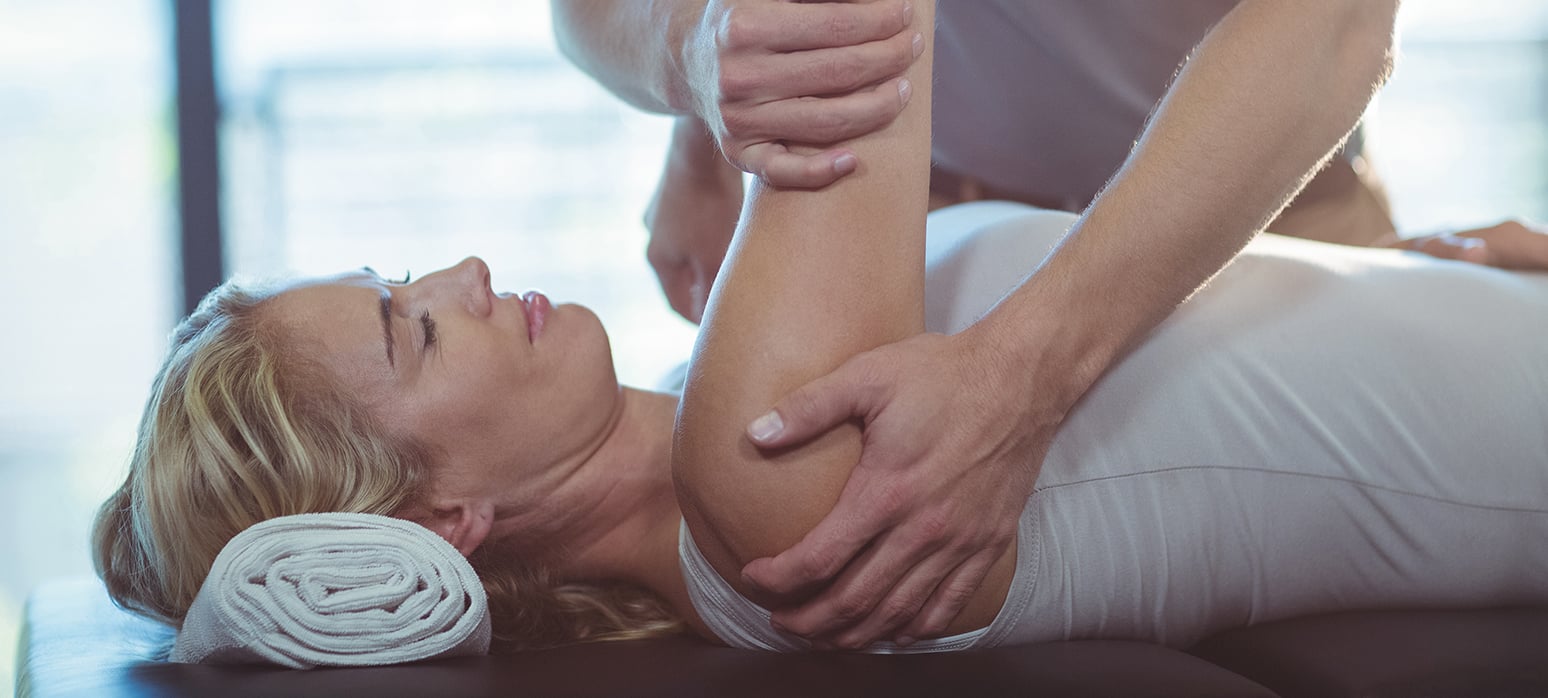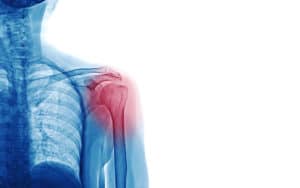Doctor for Shoulder Instability in Raleigh, NC
What is shoulder dislocation and instability?
Your shoulder is made up of a large ball and socket joint, which is held together by tendons, muscles, and ligaments called your rotator cuff. Shoulder instability is a common condition among athletes who participate in certain sports as well as people who have suffered from a prior shoulder injury.
Shoulder dislocation is one example of an injury to the shoulder that may result in shoulder instability. Shoulder dislocation is a serious condition that occurs when the ball portion of the joint is disconnected from the socket portion. When this happens, it can result in a labral tear or rotator cuff injury. This can result in persistent shoulder instability, or fear that the shoulder will dislocate again, and can be treated by an orthopedic specialist, such as Dr. Dare.
What causes shoulder instability?
Shoulder instability is often caused by a prior shoulder dislocation but sometimes may occur for other reasons. The following are the main causes of shoulder weakness and instability:
- Playing sports that cause repeated shoulder movements
- Baseball
- Softball
- Football
- Swimming
- Volleyball
- Genetic predispositions
- Prior shoulder dislocation
What are the symptoms of a dislocated shoulder?
Visit Dr. Dare in Raleigh, NC for a full evaluation and diagnosis of shoulder instability if you notice any of the below common indicators of shoulder instability:
- Feeling of weakness or looseness in shoulder joint
- Aching pain in your shoulder
- One or more shoulder dislocations
- One or more shoulder injuries
- Shoulder pain or weakness during sports
How to diagnose a dislocated shoulder?
To diagnose your shoulder dislocation or shoulder instability, schedule an evaluation with Dr. David Dare. During the consultation, Dr. Dare listens to your symptoms, concerns, and prior relevant medical history to fully understand the pain you are experiencing. He conducts a thorough physical examination of your shoulder joint, noting any signs of shoulder instability or other shoulder conditions. If needed, he may also recommend undergoing a diagnostic image test in order to rule out other shoulder conditions before moving on to your treatment. These diagnostic tests show details of your shoulder joint and any damages to the surrounding structures:
- X-rays
- MRI scans
- CT scans
- Ultrasound scan
What are the Non-Surgical Treatment Options for a Dislocated Shoulder?
In the majority of cases, shoulder instability and dislocation can be treated using nonoperative modalities. Dr. Dare may suggest any of the following conservative shoulder treatments get you back to your normal strength:
- Rest
- Activity level and lifestyle modifications
- Heat/ice therapy
- Physical therapy
- Exercise therapy
- Massage therapy
- Anti-inflammatory medications
What Our Patients Have to Say
“HE WAS THOROUGH IN STUDYING MY PROBLEM AND I AM SATISFIED WITH HIS SUGGESTED SOLUTION.”
What are the Surgical Treatment Options for a Dislocated Shoulder?
When necessary, Dr. David Dare has the training and experience to perform arthroscopic shoulder surgery to repair an injured labrum and/or rotator cuff.
Schedule a Consultation
If you are experiencing symptoms of shoulder dislocation or instability, consult an orthopedic shoulder specialist. Dr. David Dare is a fellowship-trained orthopedic surgeon specializing in sports medicine and shoulder surgery. His primary goal is to develop an effective treatment plan using the least invasive techniques to relieve your shoulder pain, restore function, and get you back to feeling your best. Call 919.781.5600 or fill out the form on this page to schedule an appointment with Dr. Dare today.




